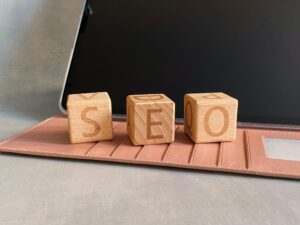MOBILE SEO

In this article of Ramikar you will get to know how people search on the internet, mobile SEO, traffic and relevence. Let’s read the article in Ramikar.
How People Search On the Internet?
When people search on the internet, there are several factors that come into play. If you know these factors you will have a better SEO system and improve your website. These factors can be broadly categorized into three main areas: the user’s intent, the search engine algorithm, and the user’s behavior.
User Intent:
The user’s intent is the primary factor that determines how they search on the internet. Users may have different intentions when searching for information online, such as finding a specific product or service, researching a topic, shopping or looking for entertainment. Depending on their intent, users may use different keywords and phrases to conduct their search.
Search Engine Algorithm:
The search engine algorithm is another important factor that affects how people search on the internet. Search engines use complex algorithms to determine which websites and pages are most relevant to a user’s query. These algorithms take into account various factors such as keyword relevance, page authority, and backlinks to determine which pages should appear at the top of search results.
User Behavior:
Finally, user behavior also plays a role in how people search on the internet. Users may have different preferences when it comes to using search engines and browsing websites. For example, some users may prefer to use voice search instead of typing out their queries. Others may prefer to browse through images or videos instead of reading text-based content.

What Are The Other Factors that Can Influence On People’s Search?
Other factors that can influence how people search on the internet include their location, language preferences, and device type. For example, users in different regions may use different keywords or phrases when searching for information online. Similarly, users who speak different languages may use different search terms depending on their cultural context.
Why Is It Important to know the Factors that Influence on People’s Search?
There are several factors that influence how people search on the internet. Understanding these factors can help businesses and marketers optimize their online presence and reach their target audience more effectively.
What Is Mobile SEO?
As you know, these days we use mobile phones more than any other devices. They are easy and always in hand.Mobile SEO refers to the process of optimizing a website for mobile devices, such as smartphones and tablets. Because we use mobile devices to access the internet, it has become essential for businesses to have a mobile-friendly website that is optimized for search engines.
What Are the Tecniques of Mobile SEO?
Mobile SEO involves several techniques that are designed to improve the visibility and ranking of a website on mobile search engines that you know are really important to make your business a success.These techniques include:
1. Responsive Design:
A responsive design makes sure that a website is optimized for all screen sizes and devices. For example when you use a mobile or a laptop to search. This means that the website will adjust its layout and content based on the device which is being used to access it. A responsive design is essential for mobile SEO because it shows that users can easily navigate and interact with the website on their mobile devices.
2. Mobile-Friendly Content:
The content on a website should be optimized for mobile devices. This means that it should be easy to read, with clear headings, short paragraphs, and bullet points.So you can read it easily on the website. The font size should also be large enough to be easily readable on smaller screens.
3. Page Speed:
Page speed is an important factor in mobile SEO because users expect websites to load quickly on their mobile devices. Slow-loading websites can lead to high bounce rates and lower rankings in search engine results pages (SERPs). To improve page speed, businesses can compress images, minify CSS and JavaScript files, and use caching.
4. Local SEO:
Local SEO is an important aspect of mobile SEO because many users search for local businesses using their mobile devices. Businesses can optimize their websites for local search by including location-specific keywords in their content, creating Google My Business listings, and building local citations.
5. Mobile-Friendly Navigation:
Navigation is an important part of any website, but it becomes even more critical in mobile SEO because users have limited screen space to work with. Businesses should ensure that their navigation menus are easy to use on smaller screens by using drop-down menus or hamburger menus.
6. Voice Search Optimization:
With the increasing use of voice assistants like Siri and Alexa, businesses should optimize their websites for voice search. This involves using natural language keywords and phrases that people are likely to use when speaking to their voice assistants.
When Do We Use Mobile SEO?
Mobile SEO is essential for businesses that want to reach their target audience on mobile devices. By optimizing their websites for mobile devices, businesses can improve their visibility and ranking on search engines, increase traffic to their website, and ultimately drive more conversions.

What Is the Difference Between Relevance and Traffic?
Traffic and relevance are two important concepts in the world of search engine optimization (SEO). While both are important for a successful SEO strategy, they refer to different aspects of website performance.
What Is Traffic?
Traffic refers to the number of visitors that come to visit a website. This can be measured in different ways, including page views, unique visitors, and sessions. Traffic is an important metric because it indicates how many people are finding and visiting your website. However, traffic alone does not necessarily indicate success. For example, if you have a high amount of traffic but low engagement or conversion rates, it may not be as valuable as lower traffic with higher engagement or conversion rates.
What Is Relevance?
Relevance, on the other hand, refers to how closely your website matches the search intent of users. In other words, how well your website content aligns with what users are searching for. Relevance is determined by a variety of factors including keyword usage, content quality and structure, user experience (UX), and backlinks from other relevant websites.
The Purposes Are Different
While traffic and relevance are related concepts in SEO, they serve different purposes. Traffic is important because it helps increase brand awareness and reach potential customers. However, relevance is crucial for converting those visitors into customers by providing them with the information they need to make informed decisions.
How to Achieve Both High Traffic and Relevance?
To achieve both high traffic and relevance in SEO requires a comprehensive strategy that includes keyword research, content creation and optimization, UX design improvements, link building efforts and ongoing analysis of performance metrics.
Why Is Keyword Research Important?
Keyword research is essential for identifying the terms that potential customers use when searching for products or services related to your business. By targeting these keywords in your content creation efforts you can increase the likelihood that your website will appear at the top of search engine results pages (SERPs) when users search for those terms.
How Contents Are Important?
Content creation involves creating high-quality content that provides value to users while also incorporating targeted keywords strategically throughout the page. This can include blog posts, product descriptions or landing pages.
What Is UX Design?
UX design improvements involve optimizing your website’s design and layout to make it easy for users to navigate and find the information they need. This includes improving page load times, mobile responsiveness, and overall user experience.
How Can Link Building Help?
Link building efforts involve acquiring backlinks from other relevant websites. This can help increase your website’s authority and relevance in the eyes of search engines, which can lead to higher rankings in SERPs.
Analysing Performance Metrics
Ongoing analysis of performance metrics is essential for identifying areas of improvement in your SEO strategy. This includes monitoring traffic and engagement metrics, as well as analyzing keyword rankings and backlink profiles to identify opportunities for improvement.
Related Concepts and Different Purposes
In fact, while traffic and relevance are related concepts in SEO, they serve different purposes. Traffic is important for increasing brand awareness and reaching potential customers, while relevance is crucial for converting those visitors into customers by providing them with the information they need to make informed decisions. Achieving both high traffic and relevance requires a comprehensive SEO strategy that includes keyword research, content creation and optimization, UX design improvements, link building efforts, and ongoing analysis of performance metrics.
What Are the Advantages of High Traffic and Low Relevance?
A high traffic low relevance approach in SEO refers to targeting keywords that have a high search volume but are not directly related to the content of your website. This approach can have several advantages, including:
1. Increased visibility:
By targeting high traffic keywords, you can increase your website’s visibility in search engine results pages (SERPs). This can lead to more clicks and visits to your website.
2. Increased brand awareness:
Even if the keywords you target are not directly related to your business or industry, they can still help increase brand awareness. As more people see your website in search results, they become more familiar with your brand
3. Potential for new customers:
While the visitors you attract through high traffic keywords may not be directly interested in your products or services, there is still potential for them to become customers. By providing valuable content and engaging with visitors, you can convert them into loyal customers over time.
4. Diversification of traffic sources:
By targeting a variety of keywords, including those that are not directly related to your business, you can diversify your sources of traffic. This can help protect against fluctuations in search engine algorithms and changes in consumer behavior.
5. Lower competition:
High traffic low relevance keywords often have lower competition than more specific and relevant keywords. This means it may be easier to rank for these keywords and attract visitors to your website.
How to Contact Ramikar?
All we wanna say is that with an expert team which knows every single step of a good SEO you do not need any special force but your good services. So, all you need to do is to tap the link to contact us.
Recent Articles:

Video Marketing Canada: Best Strategies for 2025

Photography Services Canada: For Web & Social Media Use

Logo Design Canada: Create a Logo That Truly Stands Out
Let us help !
Related Posts
Comments






